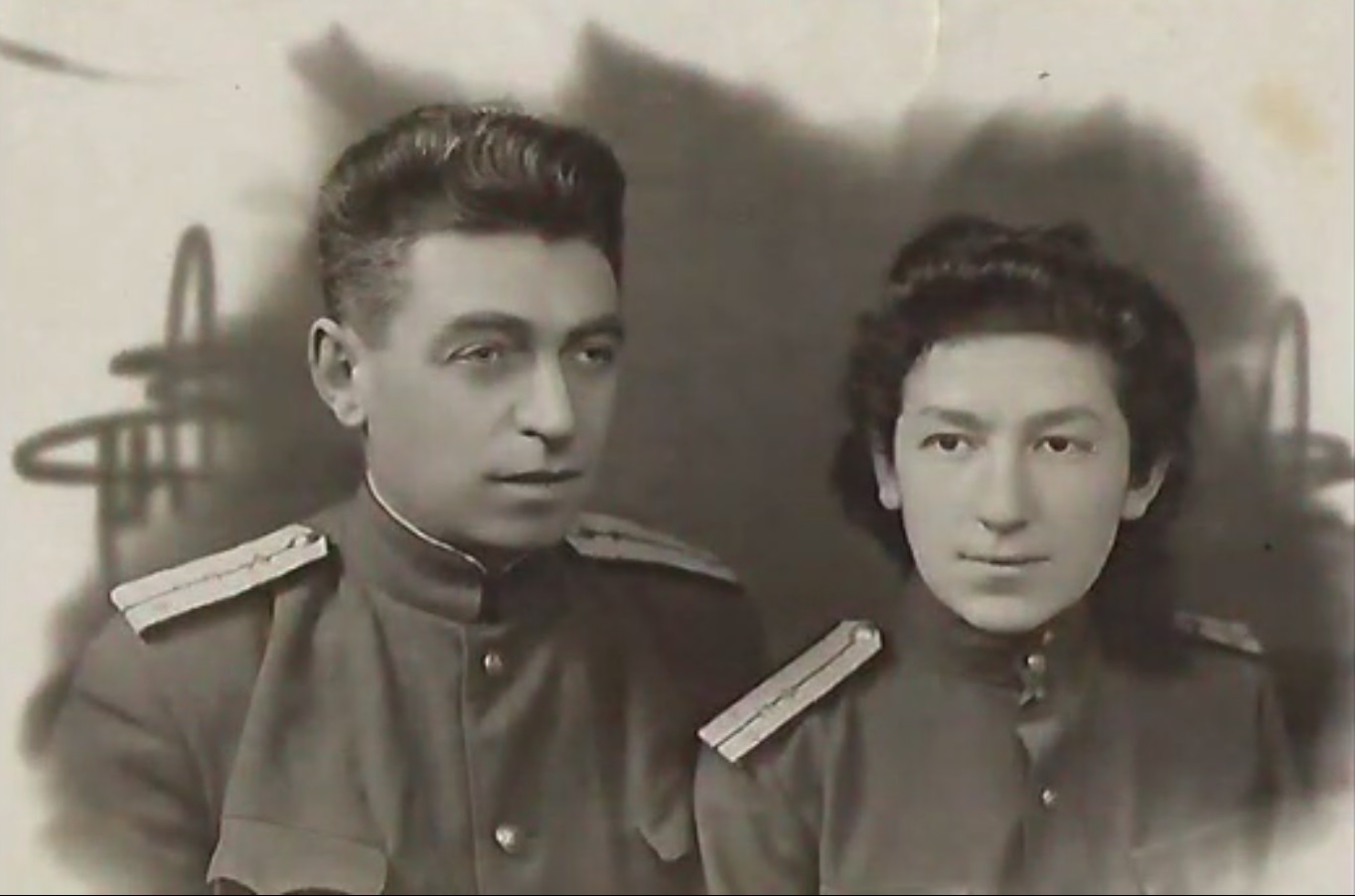Yevgenia Tremeit was born in Kharkov in 1919, in a Jewish family. She finished high school in her native city and enrolled in the Kharkov Medical Institute.
By the time of the German invasion of the USSR in late June 1941, Yevgenia had completed four years of study at the Institute. She was evacuated to Turkmenia with her parents. There, despite not having an official diploma, Yevgenia worked as a physician at a local hospital, where she met her future husband, Leonid Notes, who was undergoing medical rehabilitation after a severe leg wound. In 1943, she was drafted into the Red Army. Tremeit served as a physician in frontline hospitals. Captain of the Medical Service Yevgenia Tremeit met V-E Day in the vicinity of Vienna. She was awarded the Order of the Red Star and some medals. In 1946, Tremeit was discharged from the army, whereupon she passed the state exams without attending lectures, receiving a medical diploma with honors.
Leonid Notes was born in 1909 in Rostov-on-Don, which lay outside the Pale of Settlement, in a traditional Jewish family. At the age of 8, Leonid began to attend a gymnasium. However, the gymnasium was closed down following the 1917 Revolution and the establishment of Soviet rule in the city. Leonid completed his secondary education at a Soviet school. After finishing it, he began an apprenticeship at a factory, learning the skills of a lathe operator.
In 1930, Leonid Notes was called up to serve in the army, where his superiors recommended him for enrolment in a military academy. After successfully completing all the necessary procedures, he was sent to the Military Engineering Academy in Moscow. In 1938, Leonid Notes received a diploma in military engineering.
At the time of the outbreak of the Soviet-German War, Notes was stationed in the area of Stalingrad, working in the construction of military installations. He requested to be transferred to the front. Shortly thereafter, he was appointed chief engineer of an armored brigade that was taking an active part in the defense of Moscow. In one of the battles in this region, Leonid was seriously wounded in the leg. He was mistakenly declared "missing in action." In reality, he underwent a lengthy rehabilitation in Turkmenia, where his parents had been evacuated.
Captain Leonid Notes never returned to frontline duty, and he went on to serve in construction units in the Soviet rear. Over the course of the war, he was awarded the Order of the Patriotic War, 2nd class, and some medals.
After the end of the war, Yevgenia Tremeit and Leonid Notes lived on the island of Sakhalin, where Leonid had been posted. He supervised military construction projects, while Yevgenia worked as a surgeon at a local hospital. In 1951, the family moved to Rostov-on-Don. At that point, Leonid Notes officially completed 25 years of service in the armed forces, and he began to receive a military pension, while continuing to work in the construction arm of the military district. Yevgenia's professional life was more difficult; despite her extensive knowledge and experience, she found it hard to get a job during the Stalinist antisemitic campaign of 1948–1953. For a time, she volunteered at a local outpatient clinic, where she carried out the duties of a district physician.
In the early 1960s, the family moved in with Tremeit's parents in Alma-Ata (present-day Almaty, Kazakhstan), where Yevgenia found a job at the Institute of Experimental Surgery. For decades, she was engaged in research in the field of surgery, and defended a dissertation.
In 1986, Leonid Notes passed away. Following a foot amputation – caused by his war wound, which had continued to pain him throughout his postwar life – he developed an inflammation, and his body could not cope with the infection.
In 1993, Yevgenia Tremeit immigrated to Israel. She died in 2021, at the age of 101.







